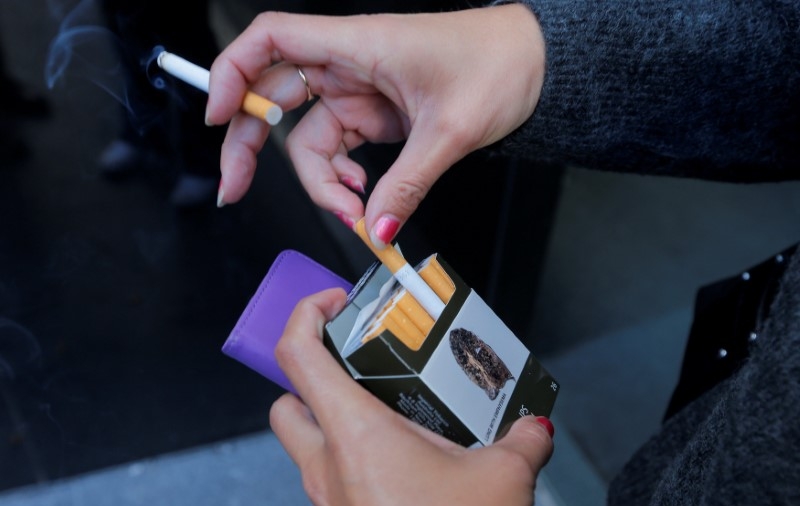A peer-reviewed study by British and Chinese scientists has revealed that smoking inhibits brain growth in young people, and even reduces gray matter mass in certain areas of the brain.
Scientists from the universities of Cambridge and Warwick in the UK analyzed brain images and behavioral data from over 800 young people in cooperation with Fudan University in China.
The researchers compared brain imaging data gathered from four European countries: the UK, Germany, France, and Ireland. More specifically, they compared the levels of gray matter in the brain—the tissue that contains the neurons and processes information.
The participants were people with smoking experience at the ages of 14, 19 and 23. All participants were also asked to fill out two questionnaires investigating the personality traits of “novelty seeking” and “sensation seeking.”
“Both questionnaires examine the pursuit of thrilling experiences, but they measure distinct behaviors,” senior co-author Professor Trevor Robbins told Eurekalert!.
“The sensation seeking scale focuses on pleasurable experiences, while the novelty seeking questionnaire includes items on impulsiveness and rule-breaking.”
The study showed that those who began smoking before 14 had, on average, significantly less grey matter in the left prefrontal cortex. Interestingly, those who had started smoking by age 19 also had less grey matter in their left prefrontal cortex at 14—long before they started smoking.
The results prompted the scientists to state that low grey matter volume in the left prefrontal cortex may be an “inheritable biomarker” for nicotine addiction. At the same time, the study also revealed that smoking reduces grey matter in these areas of the brain, thus further enhancing the urge to smoke.
Comparing the results of the questionnaire with the observed loss of brain matter led the researchers to conclude that the loss of grey matter in the left prefrontal lobe tends to lead to “disinhibition”: rule-breaking behavior stemming from a limited ability to consider consequences in the decision-making process.
Once a nicotine addiction forms, the right part of the same brain region also begins to lose grey matter—and rapidly, irrespective of the age at which one started smoking.
Comparing personality traits and grey-matter loss, the right prefrontal cortex was linked to the seeking of sensations. As grey matter reduces in that area of the brain, the person may lose control over his pleasure-seeking urges, or what the researchers called “hedonic motivation.” Excessive loss of grey matter in the right prefrontal cortex was also linked to binge drinking and marijuana use.
Considering the combined effect on the left and right prefrontal cortexes, smoking can lead to a “neurobehavioral mechanism” that locks smokers into long-term addiction.
“Smoking is perhaps the most common addictive behavior in the world, and a leading cause of adult mortality,” said Mr. Robbins. “The initiation of a smoking habit is most likely to occur during adolescence. Any way of detecting an increased chance of this, so we can target interventions, could help save millions of lives.”
The American Lung Association states that, “among adults who have ever smoked daily, 78 percent had smoked their first cigarette by the time they were 18 years of age, and 94 percent had by age 21.”
According to the American Cancer Society, around 34 million American adults smoke cigarettes today, while smoking remains the single largest preventable cause of illness and death globally.


